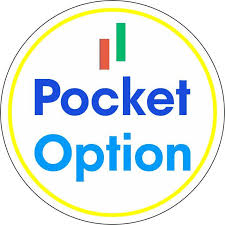
Pocket Option Halal: Navigating Islamic Trading Principles
Pocket Option is gaining popularity amongst traders globally, but for Muslim traders, the question of whether it adheres to halal principles remains paramount. Understanding the complexities of halal trading can make a significant difference in the trading journey. To delve deeper into this topic, visit Pocket Option Halal https://p0cketopti0n.com/pocket-option-halal/. This article will explore what halal trading means, how Pocket Option aligns with these principles, and the importance of compliance with Islamic finance rules.
What is Halal Trading?
Halal trading refers to investment practices that comply with Islamic law, or Sharia. The word ‘halal’ means permissible, while ‘haram’ means forbidden. For a trading practice to be classified as halal, it must avoid elements that are prohibited under Islamic law. These include practices involving riba (usury), excessive speculation (gharar), and investment in businesses engaged in activities considered haram, like alcohol, gambling, and pork products.
Understanding Sharia Compliance in Trading
To ensure that trading practices are sharia-compliant, Muslim traders refer to the principles laid out in Islamic texts. Here are some key factors:
- Prohibition of Riba: Any profit generated through interest is strictly forbidden. Financial products that earn interest are considered haram.
- Gharar (Excessive Uncertainty): Investments that are highly speculative, uncertain, or based on luck are not permissible. Traders must conduct business with clear terms and conditions.
- Ethical Investments: Investments should only be made in halal businesses. This means avoiding companies that profit from prohibited sectors.

Is Pocket Option Halal?
Pocket Option positions itself as a broker that allows for diversified trading opportunities. To determine if it is halal, one must consider the following:
- Trading Instruments: Pocket Option provides various trading options, including binary options, cryptocurrencies, and forex. It is paramount to verify whether investments in these instruments align with halal principles.
- Leverage and Margin: The use of leverage must be scrutinized, as it may involve riba. Many traders find that certain leveraged trading options could potentially fall into haram territory.
- No Guaranteed Returns: Since trading is associated with risk, the absence of guaranteed returns is necessary. Halal trading requires investments to be made in a fair manner, void of any fixed interest rates.
Finding Halal Investment Opportunities
Identifying halal investment opportunities within the framework of Pocket Option requires diligent research. Traders can start by filtering out any companies or sectors involved in businesses that conflict with islamic values. Furthermore, it’s essential to ensure that contracts and transactions on platforms like Pocket Option keep in mind the Islamic ethical standards.
Engaging with Scholars and Traders
When in doubt, it is wise to consult with knowledgeable sources, such as scholars who specialize in Islamic finance or experienced traders who navigate halal trading. These experts can provide insights and clarifications to ensure that your trading practice remains compliant with sharia law.

Benefits of Halal Trading
Engaging in halal trading not only fulfills a moral obligation for conscience-driven Muslim traders but also promotes ethical investment practices. Here are some benefits of adhering to halal trading concepts:
- Moral Alignment: Traders feel a sense of satisfaction knowing that their investment practices honor their faith.
- Community Building: Muslim traders can build networks with others who share similar values and objectives.
- Financial Knowledge: Emphasizing ethical practices encourages traders to enhance their understanding of finance and investment.
Challenges of Halal Trading
Despite the benefits, halal trading does come with its challenges. Some common obstacles include:
- Lack of Awareness: Many traders are unaware of the extent of halal investment practices and might inadvertently engage in haram activities.
- Limited Options: The pool of halal trading options may be limited, restricting traders in their investment choices.
- Resource Availability: Access to reliable educational resources on halal trading may be scarce.
Conclusion
As the world of trading becomes increasingly accessible, ensuring that one’s practices remain within the boundaries of halal principles is vital for Muslim traders. Pocket Option presents a pathway for engaging in trading that aligns with these principles if approached with caution and due diligence. By being informed about the nature of investments, actively seeking halal instruments, and consulting with knowledgeable individuals, Muslim traders can navigate this landscape while remaining true to their ethical and spiritual commitments.
